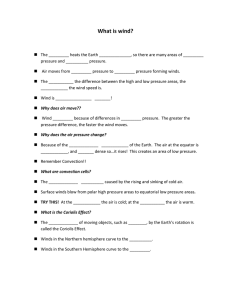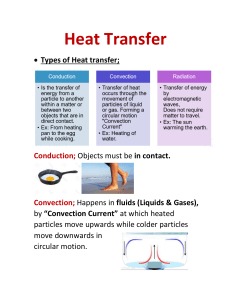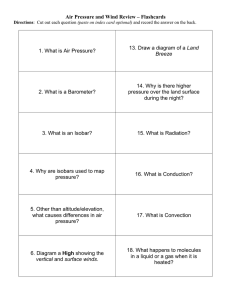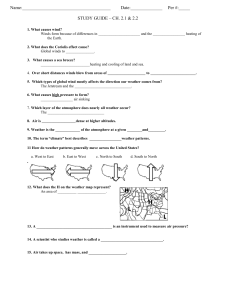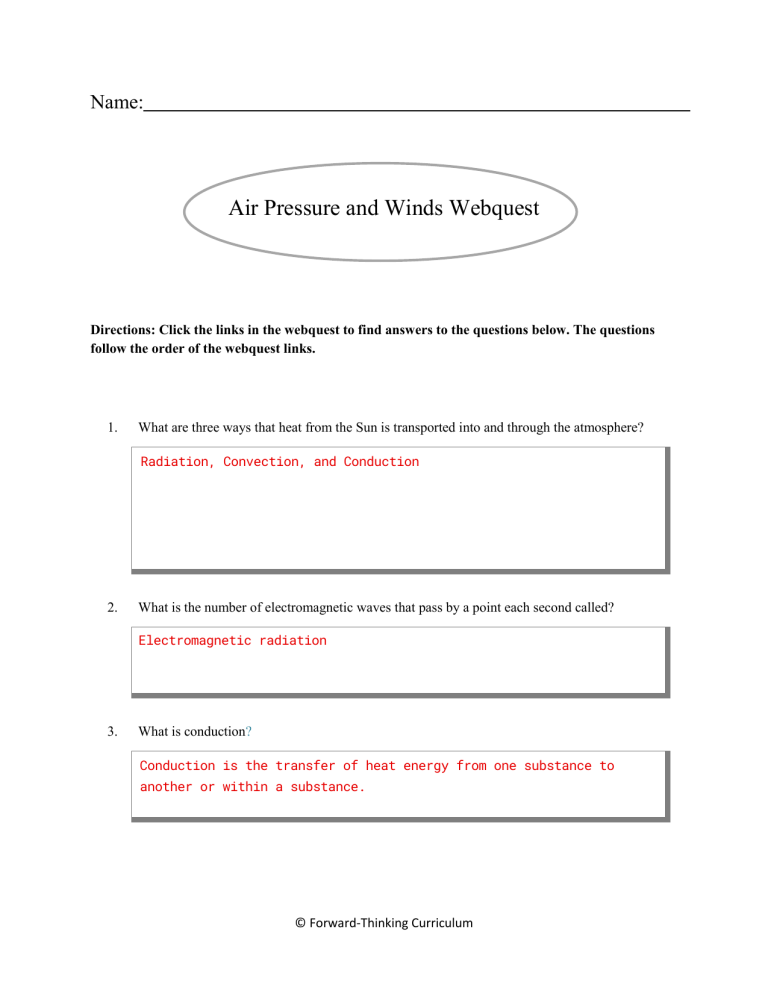
Name: Air Pressure and Winds Webquest Directions: Click the links in the webquest to find answers to the questions below. The questions follow the order of the webquest links. 1. What are three ways that heat from the Sun is transported into and through the atmosphere? Radiation, Convection, and Conduction 2. What is the number of electromagnetic waves that pass by a point each second called? Electromagnetic radiation 3. What is conduction? Conduction is the transfer of heat energy from one substance to another or within a substance. © Forward-Thinking Curriculum 4. What is convection? Convection is the transfer of heat energy in a fluid. 5. What type of heat transfer creates wind? Convection 6. What is atmospheric pressure frequently measured with? A barometer 7. What is wind? Wind is air moving from a place that has higher pressure to one that has lower pressure. 8. What does air do in the places on Earth where it is warmed by the Sun the most? In the places where air is warmed most, it rises. 9. What are the lowest and highest numbers on the Beaufort Scale? 0-12 © Forward-Thinking Curriculum 10. Do westerly winds blow from the west or toward the west? toward the west 11. Name three winds that predictably flow in the same direction. Trade Winds, Westerlies, and Polar Easterlies. 12. How do microbursts form? Microbursts form when air, cooled rapidly within a storm, zooms downward at high speeds because it is denser than the surrounding air. 13. The pressure gradient force propels winds from areas of high pressure. Where do the winds go? The pressure gradient force drives winds from regions of high pressure to regions of low pressure. 14. What force causes wind in the Northern Hemisphere to flow in a clockwise direction around high-pressure areas? Coriolis force © Forward-Thinking Curriculum 15. How many main circulations are there between the equator and the poles? Three: Hadley cell, Ferrel Cell, Polar Cell 16. What convection cell dominates tropical and subtropical climates? Hadley cell 17. Why are there a lot of deserts found around 30°N/S latitude around the world? These areas, especially the west coast of continents, tend to have more precipitation due to more storms moving around the earth at these latitudes. © Forward-Thinking Curriculum
